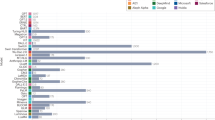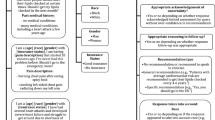Abstract
Personalized medicine is a novel frontier in health care that is based on each person’s unique genetic makeup. It represents an exciting opportunity to improve the future of individualized health care for all individuals. Pharmacogenomics, as the main part of personalized medicine, aims to optimize and create a more targeted treatment approach based on genetic variations in drug response. It is predicted that future treatments will be algorithm-based instead of evidence-based that will consider a patient’s genetic, transcriptomic, proteomic, epigenetic, and lifestyle factors resulting in individualized medication. A generative pretrained transformer (GPT) is an artificial intelligence (AI) tool that generates language resembling human-like writing enabling users to engage in a manner that is practically identical to speaking with a human being. GPT’s predictive algorithms can respond to questions that have never been addressed. Chat Generative Pretrained Transformer (ChatGPT) is an AI chatbot’s advanced with conversational capabilities. In the present study, questions were asked from ChatGPT about the future of personalized medicine and pharmacogenomics. ChatGPT predicted both to be a promising approach with a bright future that holds great promises in improving patient outcomes and transforming the field of medicine. But it still has several limitations that need to be solved.
This is a preview of subscription content, access via your institution
Access options
Subscribe to this journal
Receive 6 print issues and online access
$259.00 per year
only $43.17 per issue
Buy this article
- Purchase on Springer Link
- Instant access to full article PDF
Prices may be subject to local taxes which are calculated during checkout
Similar content being viewed by others
References
Hamburg MA, Collins FS. The path to personalized medicine. N. Engl J Med. 2010;363:301–4.
National Research Council Committee on AFfDaNToD. The National Academies Collection: Reports funded by National Institutes of Health. Toward Precision Medicine: Building a Knowledge Network for Biomedical Research and a New Taxonomy of Disease. Washington (DC): National Academies Press (US) Copyright © 2011, National Academy of Sciences.; 2011.
Hasanzad M. Precision Medicine in Clinical Practice: Springer Nature; 2022.
Turner RM, Magavern EF, Pirmohamed M. Pharmacogenomics: relevance and opportunities for clinical pharmacology. Br J Clin Pharmacol. 2022;88:3943–6.
Haupt CE, Marks M. AI-generated medical advice—GPT and beyond. JAMA. 2023;329:1349–50.
OpenAI. Introducing ChatGPT. https://www.openaicom/blog/chatgpt.
van Dis EA, Bollen J, Zuidema W, van Rooij R, Bockting CL. ChatGPT: five priorities for research. Nature. 2023;614:224–6.
Author information
Authors and Affiliations
Contributions
GP participated in the supervision of the study design and validation. NS participated in the visualization and investigation. BS participated in the reviewing and editing the manuscript. BL provided insightful comments. NK contributed in ChatGPT search and English revision. MH conceptualized and wrote the first draft of the manuscript.
Corresponding author
Ethics declarations
Competing interests
The authors declare no competing interests.
Additional information
Publisher’s note Springer Nature remains neutral with regard to jurisdictional claims in published maps and institutional affiliations.
Rights and permissions
Springer Nature or its licensor (e.g. a society or other partner) holds exclusive rights to this article under a publishing agreement with the author(s) or other rightsholder(s); author self-archiving of the accepted manuscript version of this article is solely governed by the terms of such publishing agreement and applicable law.
About this article
Cite this article
Patrinos, G.P., Sarhangi, N., Sarrami, B. et al. Using ChatGPT to predict the future of personalized medicine. Pharmacogenomics J 23, 178–184 (2023). https://doi.org/10.1038/s41397-023-00316-9
Received:
Accepted:
Published:
Issue Date:
DOI: https://doi.org/10.1038/s41397-023-00316-9



